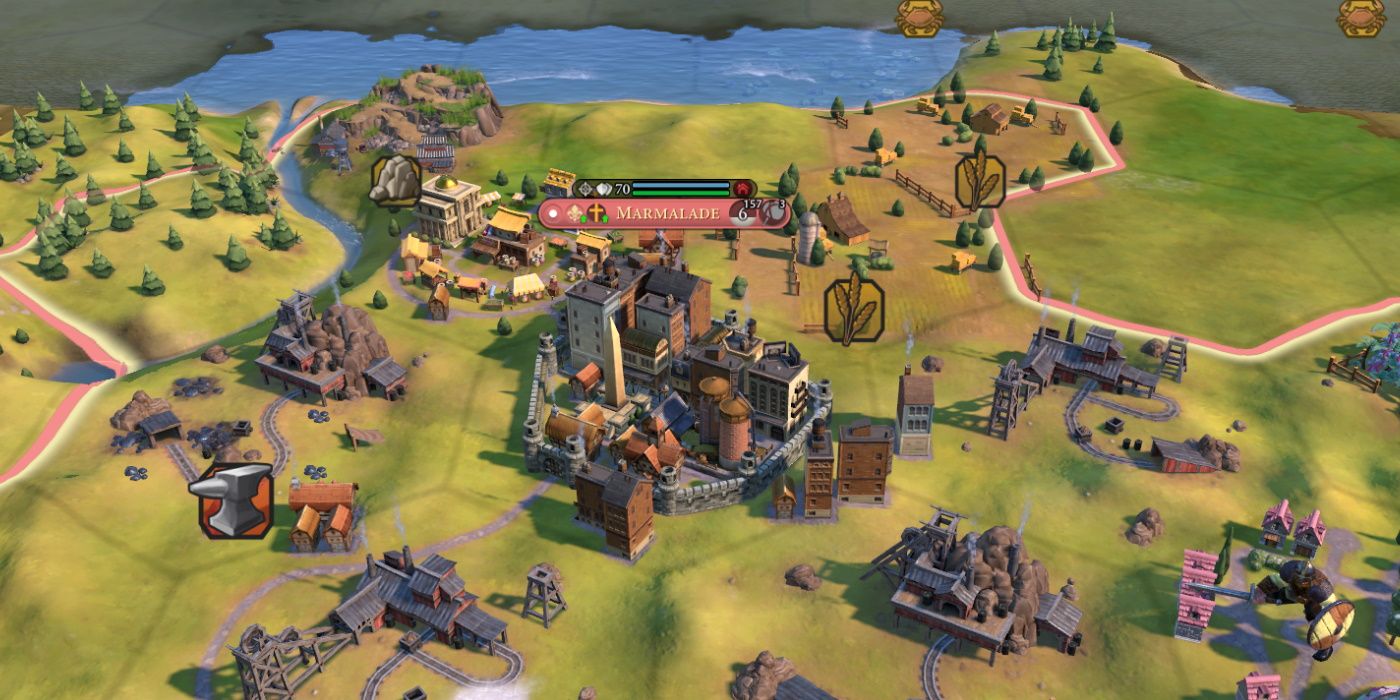
When a player does one of a handful of powerful actions such as use a nuclear weapon, convert an enemy holy city, or conquer a city-state, the rest of the world is given a chance to unite together against them. Many of the smaller new wrinkles in Rise and Fall, such as late-game “emergencies,” similarly address structural gameplay issues without really enhancing the fiction. It creates new ways to leverage and think about things that you were already doing, but the system doesn’t really add anything in-and-of itself. In general, however, ages feel more like of a quality-of-life improvement than a new twist. In edge-cases, this can lead to new ways to think about your strategy, such as intentionally tanking an era to earn a Dark Age as Tamar of Georgia to fully take advantage of her powerful Dedication Bonuses when you bounce back and earn a Heroic Age, which confers more bonuses. Ages mitigate the possibility of decision-making dry-spells throughout the game by ensuring you have mid-term goals to think about at all times. Just a few more turns until the Pyramids are built, but by the time that happens you’re nearly ready go clear that nearby barbarian camp, then you’re just a few turns away from unlocking a new government, and suddenly it’s 3 a.m. The infamous “just one more turn” spell of Civ is rooted in the game’s layering of short- and long-term goals.
.jpg)
The system also helps push players to set structured goals between individual tasks like building a wonder and overall victory conditions. Rise & Fall’s most important addition is that it breaks up your overall progress through history into “world eras,” which correspond with the individual civ eras (Ancient, Classical, Medieval, etc.), but holistically for all of humanity.Īges are meant to capture the ebb and flow of cultures, bringing their periods of particular glory or struggle into sharp relief.

Rise & Fall fills out Civilization VI with a subtler suite of new systems that do a lot to smooth out the game and provide more interesting decisions throughout, but don’t add a lot to the overall story. Barring that last one, Civ VI launched with all of those features, leaving its first expansion with a more nebulous brief. Gods & Kings and Brave New World did this for Civ V by adding espionage, religion, trade, and the World Congress. With dependably solid opening acts, the project of each major Civ expansion, then, has historically revolved around established a more refined set of goals, and giving the player something to do besides click “next turn” for hundreds of years.
Civilization vi rise and fall series#
It has become increasingly difficult to reconcile these two experiential goals: Being both strategically interesting and narratively coherent the longer a game goes on, has left the series with famously uneven mid-to-late games. Civilization is also a rules-heavy beast of a strategy game, with numbers to crunch and a single winner.

There’s always been a fundamental tension at the heart of Sid Meier’s Civilization games: should the games tell a story? Or should mechanics come first? On the one hand, each game of Civilization creates a dynamic reimagining of world history, which remixes familiar historical places and faces from our global saga into a new narrative - Shaka Zulu can conquer France and build the Statue of Liberty in Lyon.


 0 kommentar(er)
0 kommentar(er)
